On Dec. 1st, 2021, School of Public Affairs successfully hosted the fourth Sino-US Scholar Dialogue on Public Administration with SCPA, ASPA. The dialogue invited Assistant Professor Mehmet Akif Demircioglu from National University of Singapore, International Expert Alex Roberts from IP Australia and Assistant Professor Jessica C. Teets from Middlebury College as speakers, and Professor Frances S. Berry from Florida State University as the discussant. Also, Professor Liang Ma from SPAP, Renmin University of China and Assistant Professor Biao Huang from Dept. Gov, SPA, Zhejiang University were invited as moderators, with Chair of SCPA, ASPA and Professor Elaine Lu from The City University of New York and Vice Dean and Professor Weiwen Zhang from SPA, Zhejiang University giving a welcome speech. About 120 Chinese and foreign scholars participated in the dialogue.
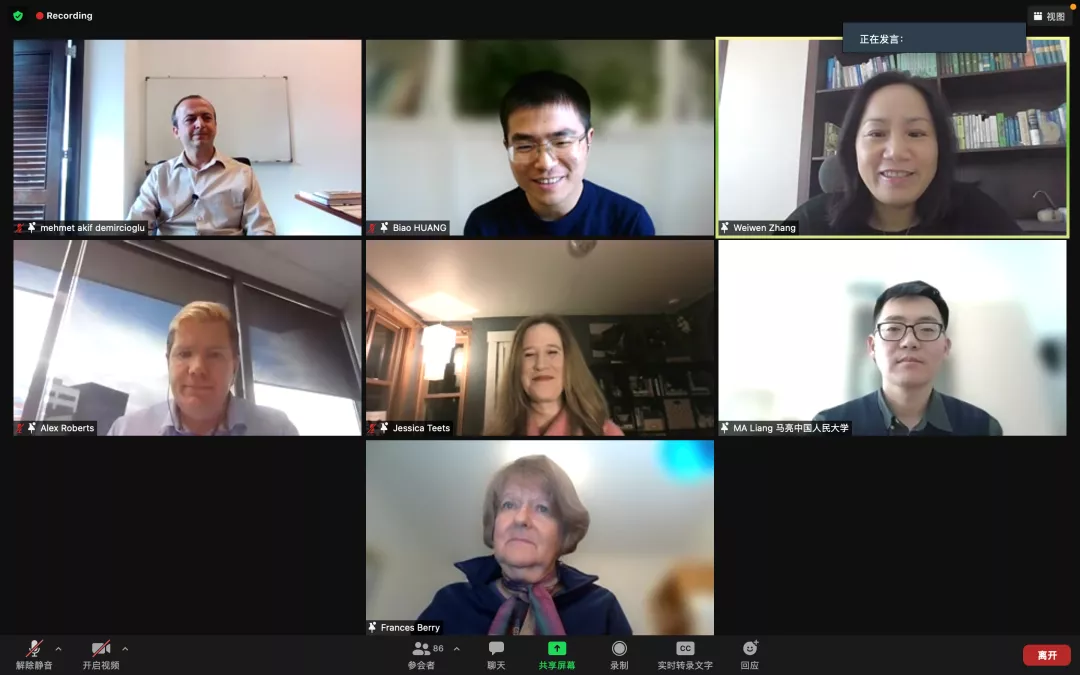
For the topic COVID-19 and the New Normal of Public Sector Innovation, Prof. Mehmet Akif fully discussed the conditions for government innovation based on new challenges caused by the new normal of COVID-19. He summarized the past literature about necessary conditions for public sector innovation and illustrated his understandings: four key elements to stimulate the public sector innovation include policy experiments, incentives to staff with low performance, feedbacks and motives to improve perfotmance, but the COVID-19 crisis has normalized the task-driven innovation and complicated government innovation, so governments have to relocate their roles in a more systematic exploring way. Prof. Mehmet Akif also shared three main findings of recent researches: first, the diversification of government innovation types, second, cooperation reduced by policy ossification, and third, cooperation and innovation potential made by the increasing flexibility of organizations including non-profit organizations and public sectors.
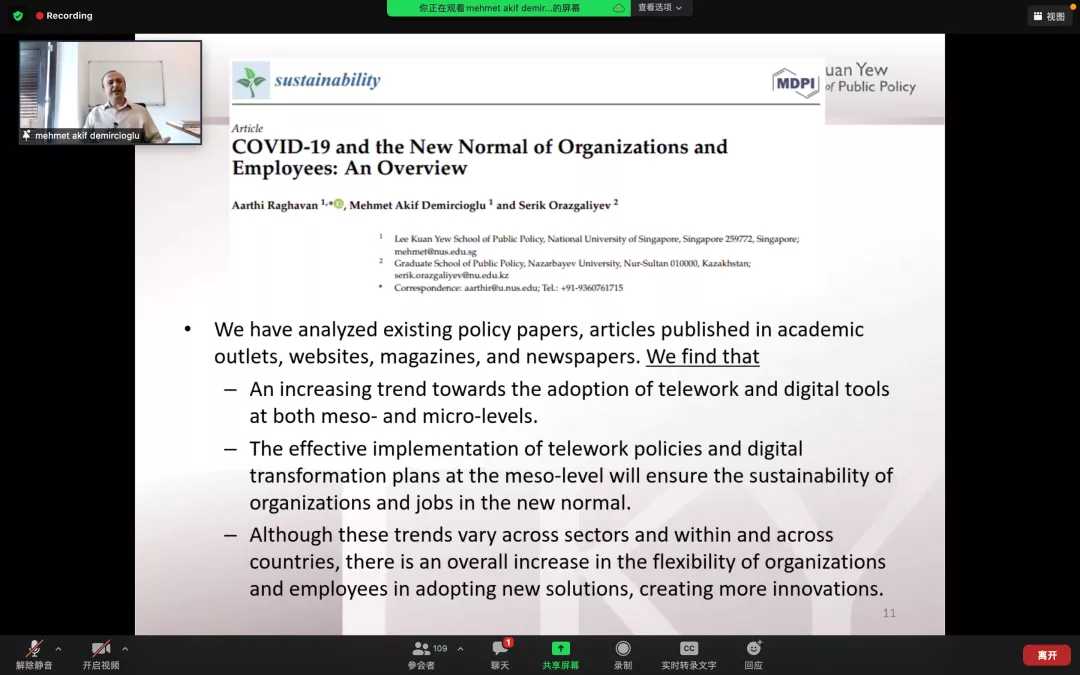
For the topic Exploring Political Personalities: The Micro-Foundation of Local Policy Innovation in China, Prof. Jessica C. Teets introduced political personality of policymakers to her empirical research and found that it does have impact on their motivations to innovate policies. Prof. Teets used principle components analysis of orginal data from Chinese local policymakers and concluded four different personality components: citizen-oriented, strategic autocrat, bureaucratic autocrat and policy entrepreneur. These personalities largely influenced innovation motivations and other factors like changes of perceived risks, and the traditional risk-acceptant policy-entrepreneur personality does not explain innovation well. Finally, she predicted the future of local policy innovation in China: a decrease in policy experiments authroized from the non-central government.
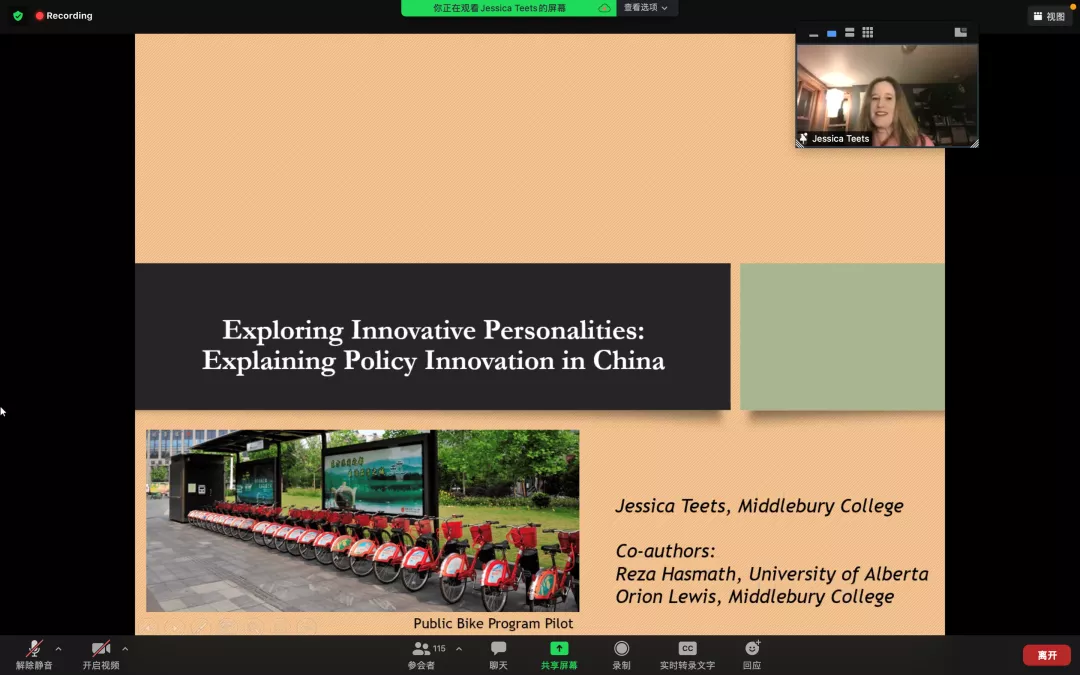
For the topic Burning Platforms (and Pandemics) are not Enough: the limits of Crises in Driving Public Sector Innovation, Expert Alex Roberts from IP Australia, who has been committed to the public sector innovation as a practitioner, proposed cultivating the innovation ability before the coming crises as his main argument. At present, governments have to face emerging crises similar to COVID-19, so innovation should be the basic work for governments including learning innovation in advance and conducting emergency drills. It can deeply explore the policy innovation and improve comprehsenive thoughts of long-term consequences brought by crises, so as to rebalance public finances as soon as possible after the crises, maintain citizens’ trust in the government and refresh understandings about governments' roles played. He summarized three forms of learning innovation before the coming crises: first, establishing more public sector innovation observation stations to help people who haven't been exposed to crises know how others handle them, second, eliminating preferences of civil servants for existing choices to stimulate innovation, third, broadening the investment dimension of different abilities based on the need for multimode emergency response.
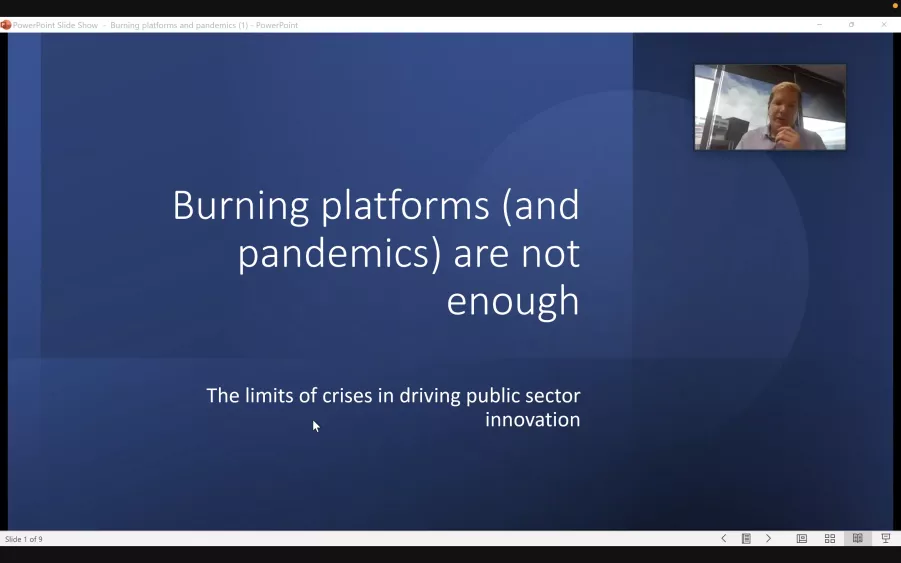
In the comment session, Prof. Frances S. Berry from Florida Stata University affirmed the contribution of three speakers, but also pointed out they didn't take the interaction between governments and citizens into good consideration, as COVID-19 was fundamentally reshaping it. Such a communication channel could't afford to be ignored. Besides, Prof. Berry gave some targented suggestions for three speakers. Like, Prof. Jessica C. Teets should clearly confirm whether civil servants are answering on behalf of their personal wishes or answeing on behalf of organizations and their possible actions, and also explore, whether a difference in policy areas would change the impacts of civil servants' political personalities on policy innovation. For another example, Prof. Berry praised Alex Roberts' discussion about the effectiveness of handling new crises based on the past response to old ones, but questioned his optimistic prediction that innovation would accelerate its production inside the government, because the realization of such an ideal state requires a lot of rationality and funds. However, in terms of the current situation, the government cannot provide sufficient resources, nor can it quickly train civil servants to have an innovative way of thinking.
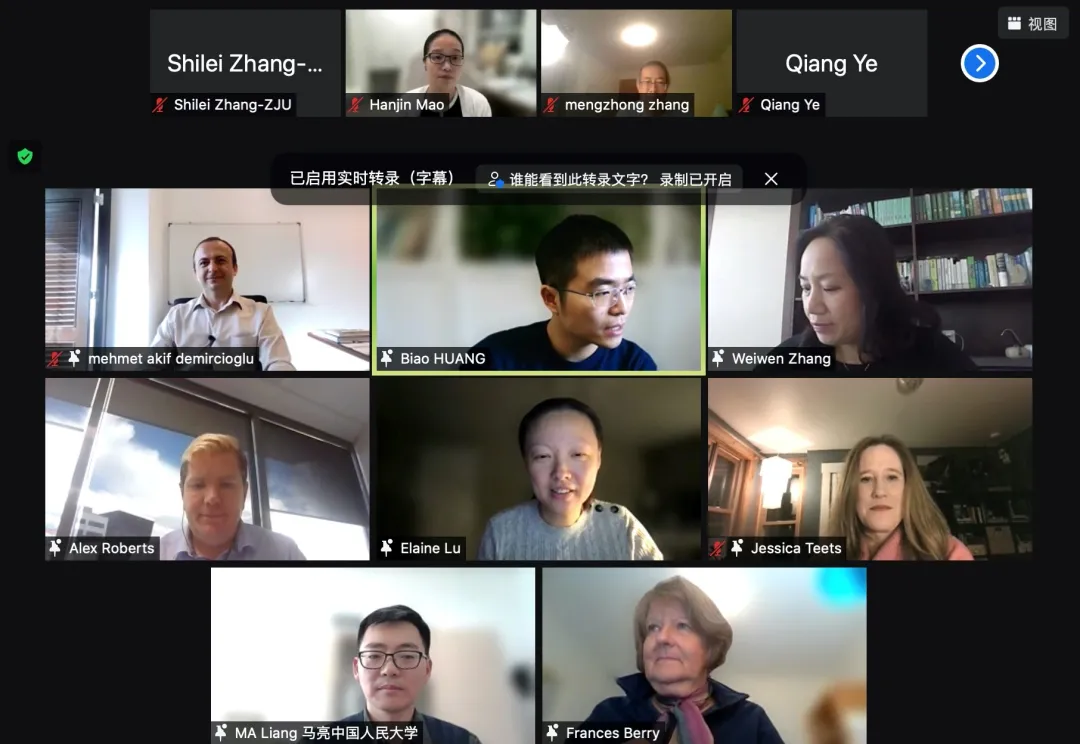
Three speakers responded to specific suggestions proposed by Prof. Frances S. Berry and made further discussion. The Sino-US Scholar Dialogue on Public Administration successfully ended in a warm atmosphere.


